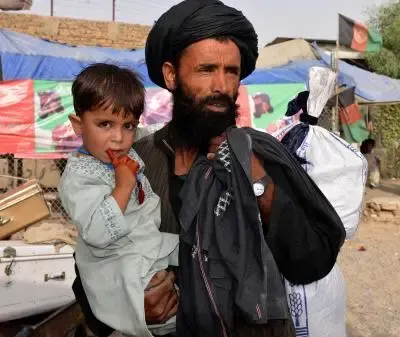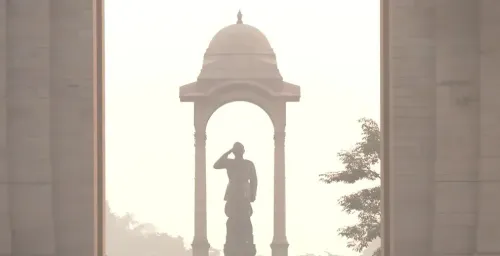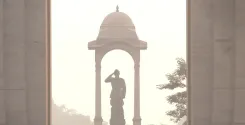What’s Behind Pakistan's Crackdown on Afghan Refugees Amid a Temporary Ceasefire?

Synopsis
Key Takeaways
- Escalating police harassment reported among Afghan refugees in Pakistan.
- Authorities have mandated evictions within a week amid rising border tensions.
- Closure of Torkham border strands thousands, affecting critical trade and humanitarian needs.
- Concerns over political motivations behind the crackdown amidst a temporary ceasefire.
- Calls for compassionate treatment of displaced individuals facing violence and uncertainty.
New Delhi, Oct 16 (NationPress) Afghan refugees in Pakistan have reported an increase in police harassment, arrests, and evictions as tensions rise at the border, exacerbating anxiety and uncertainty for numerous displaced families, according to various reports.
This development coincided with international media coverage of a temporary cease-fire declared by both governments following a week of sporadic yet intense clashes at the two principal border crossings.
In Pakistan, officials have mandated that migrants vacate their homes and shops in Quetta within one week, warning of legal repercussions for those who remain in the country unlawfully, as per Afghan online outlet Khaama News.
Deputy Commissioner Mansoor Ahmed stated that property owners renting to Afghan nationals must ensure they are cleared within the stipulated time frame.
Local authorities indicated that enforcement teams will commence inspections once the deadline has lapsed, with reports suggesting that property owners face fines and possible arrest for non-compliance.
This initiative, according to officials, is part of a broader effort to crack down on undocumented Afghan refugees throughout Pakistan.
Videos circulating on social media, reportedly from Quetta, depicted police using trucks to round up Afghan migrants.
Residents in Hazara Town reported that police were conducting door-to-door searches, inspecting shops and homes, and detaining individuals lacking proper documentation.
The abrupt crackdown – occurring alongside Afghanistan’s Foreign Minister Amir Khan Muttaqi’s visit to India and heavy gunfire along the Afghan-Pakistan border – raises questions about Islamabad’s motivations.
Skirmishes have persisted along the Durand Line for months as relations have deteriorated between the two neighboring countries.
Islamabad has accused the Taliban regime of sheltering Tehreek-e-Taliban Pakistan (TTP) elements that target Pakistan.
The TTP's armed factions are also engaged in ongoing conflicts with security forces in Khyber Pakhtunkhwa, Pakistan.
The Taliban leadership has vehemently denied these allegations, asserting that Afghan territory will not be used against any nation, as outlined in their ‘Agreement for Bringing Peace to Afghanistan’ with the United States, signed in Doha on February 29, 2020.
Meanwhile, Afghanistan’s Tolo News reported that the closure of the Torkham border due to intense gunfire has left hundreds of passengers, patients, and cargo trucks stranded, leading to significant financial losses for businesses on both sides.
It featured cancer patient Baba Murad from Takhar province, who has missed two days of treatment due to the border closure, expressing his concerns about his health. Stuck in Jalalabad for four days, he fears missing critical treatment, pleading for timely intervention. The Afghan news outlet also highlighted voices from passengers, merchants, and drivers, all urging Pakistan not to weaponize trade for political or military ends.








